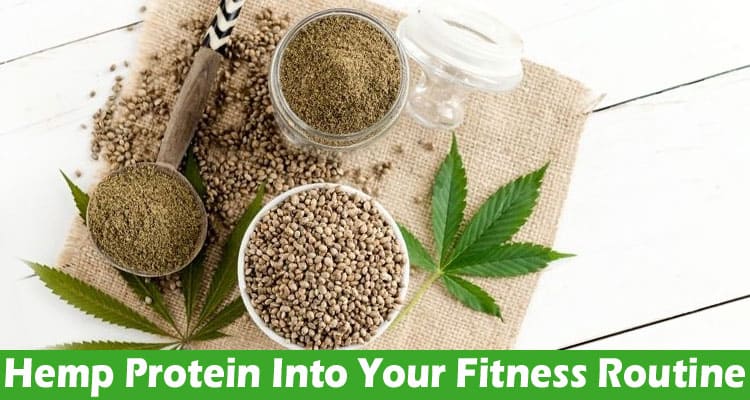Protein is an essential element when it comes to gaining lean muscle and getting the best outcomes from your training regimen. Consuming enough protein gives the body critical amino acids for muscular development and repair. Although conventional protein sources like meat, eggs, and dairy are popular among athletes, interest in plant-based protein sources is rising.
Hemp protein is one source that is gaining popularity because of its high protein content and many health benefits. This article looks into hemp’s incredible protein content and contrasts it with other plant-based proteins like rice, soy, and pea. First, however, let’s investigate the science behind developing lean muscle.
How to Build Lean Muscle
Resistance training and a healthy diet must be used to develop lean muscle, which is difficult for many would-be athletes. Small rips in our muscle fibres occur during resistance activities, such as weightlifting or bodyweight workouts. The body responds to these microtears by beginning the healing process, which results in muscular development and improved strength.
Protein serves a significant function in proper nutrition, essential for supporting this repair and development process. Amino acids, which are the components of muscle tissue, make up proteins. The body converts proteins into their component amino acids when we eat or take supplements that are high in protein. Then, to encourage muscle growth and strength development, these amino acids are employed to restore and regenerate damaged muscle fibres.
Hemp Protein Is Laden with Amino Acids
Various studies show hemp protein is one of the most nutritionally complete foods. Its remarkable amino acid profile makes it a fantastic option for anyone seeking lean muscle. It includes all nine necessary amino acids, which the body needs to receive from food sources since it cannot create them independently.
The branched-chain amino acids (BCAAs) leucine, isoleucine, and valine are among these essential amino acids. In addition to being crucial for muscle protein synthesis, BCAAs also significantly contribute to muscle development and recovery.
Additionally, hemp protein offers a healthy balance of the necessary amino acids, which is important for maximizing the synthesis of new muscle protein.
Kick Start Healing by Boosting Your Protein Intake
Hemp also stands out for its high protein concentration. Like other plant-based protein sources like rice, soy, and pea, it generally has 20–25 grams of protein per serving. Because of the high protein level, you can be confident that you’re giving your muscles enough protein to support their development and repair.
The simple digestion of hemp protein is another benefit. Hemp protein is easily absorbed by the body, in contrast to certain other plant-based proteins, enabling effective usage of the amino acids it offers. As a result, hemp protein can be swiftly delivered to the muscles, where it is required for muscular development and repair.
How to Use Hemp Protein
If you buy a high-quality hemp protein powder in Australia, you must use it effectively to get the best results. Consume it as part of a well-rounded diet that contains other crucial nutrients.
Vitamins, minerals, fibre-rich foods, and healthy fats all assist the development of muscles and general health. Hemp protein can help muscles recuperate after strenuous exercise when combined with complex carbs like whole grains and fruits.
It’s vital to remember that although protein is crucial for growing muscle, you must also eat enough calories to support your fitness objectives. Making sure you have a little calorie surplus or deficit, as appropriate, is crucial whether your goal is to add muscle while losing fat or only to concentrate on muscle growth.
How Does Hemp Protein Compare to Pea, Soy, and Rice Protein?
Hemp protein differs from rice, soy, and pea protein in several intriguing ways. For those with dietary limitations, rice protein is often recommended as a hypoallergenic choice. However, it doesn’t have the same strong amino acid profile as hemp protein.
While soy protein is a complete protein, much like hemp, some people may not be able to consume it due to allergies to soy or concerns about genetically modified organisms (GMOs).
Even though pea protein is also a complete protein, it could have a slightly lower protein content than hemp protein. It may still be a useful tool in a plant-based protein arsenal.
Last Words About the Health and Fitness Benefits of Hemp Protein
In summary, hemp protein has great potential for anyone trying to maximize their exercise routine and add lean muscle. It is an excellent option among plant-based protein sources due to its remarkable amino acid profile, high protein concentration, and simple digestion.
It stands out for its overall nutritional benefits, even though rice, soy, and pea protein also have advantages. Hemp protein may help you reach your fitness goals and encourage healthy muscle development when combined with resistance training and a balanced diet.


